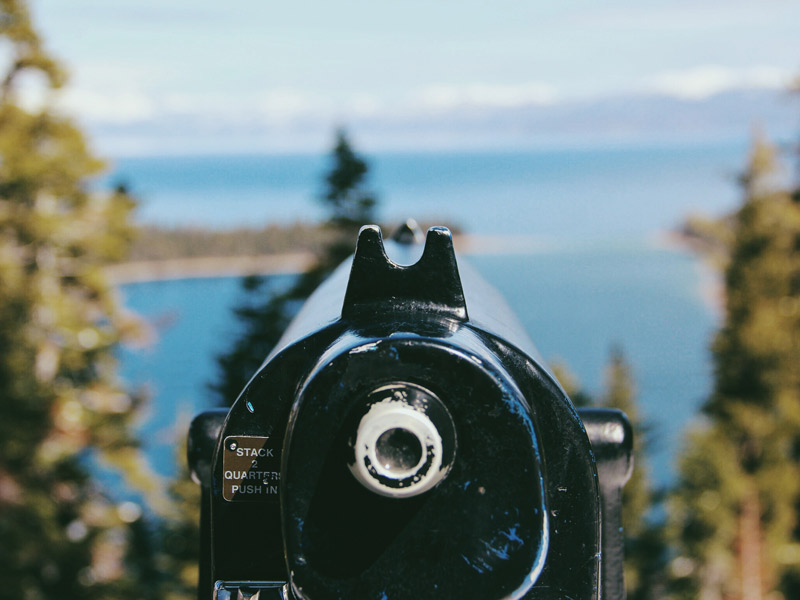 I bought it years ago at a jumble sale in Lyon, France. I was crouched under a table hunting for cheap copies of Balzac. When I got up it knocked me on the head — not the best of introductions. My attacker had a ponderous handle, a pitted side, and slight dents along the rim. The interior, however, was a smooth whorled elegance. “What do you do with this?” I asked the seller in French.
I bought it years ago at a jumble sale in Lyon, France. I was crouched under a table hunting for cheap copies of Balzac. When I got up it knocked me on the head — not the best of introductions. My attacker had a ponderous handle, a pitted side, and slight dents along the rim. The interior, however, was a smooth whorled elegance. “What do you do with this?” I asked the seller in French.
He eyed me, offended. “Think you’re being funny? That’s my prized cookware.” I studied the sullen looking pan, amused. Rust had settled into a third of it. I noticed a few wisps of cobweb clinging tenaciously to the underside of the hilt.
“What did you cook with it?”
“Everything…omelet, potatoes, steak, rack of lamb…I had two kitchen utensils. This was one of them.”
“So what went wrong?”
“I tell you there is nothing the matter with it. It’s the best equipment you’ll ever own.”
 I pointed to the corrosion. “Clearly you haven’t used it in awhile and now you’re getting rid of it. Why?”
I pointed to the corrosion. “Clearly you haven’t used it in awhile and now you’re getting rid of it. Why?”
He grimaced. “Pah! My daughter, she will not have it. A pot for every dish. Now there’s no space for my things! Then again, everything has to be pristine and ‘modern.’ I have to give up my prized books, my beloved implements, my collection of records all because they are ‘shabby.’”
I bent to sniff the skillet. A metallic tang assailed my nostrils. I pried at the inner surface with a fingernail. Bits of greasy oxidation peeled off. “It’s still useable then?”
A gleam rippled through his face. “But of course. You must scour it with a fine steel wool pad. Then wash thoroughly in warm, soapy water. Dry the cast-iron pan clean. Coat every surface with a thin veneer of cooking oil. Heat the container in an oven† for an hour, let it cool, and it becomes as new.”
I glanced at the price. “I’ll take it,” I declared.
“Ah, voilà!” He kissed the scrunched fingertips of his right hand. “You will not regret your investment. You care for this one and she will perform magnificently for you. This beauty, she has served three generations of my family.”
“Three generations?”
“Yes, just so,” he replied, wrapping my purchase in newspaper, “my father, my grandmother, her mother who was a cook for a duke. Ah, the stories this fait-tout could tell you if she were able!”
“What sort of stories?”
He leaned towards me, replying hoarsely, “It was told to me that this,” tapping his knuckle upon the bundle, “this was once used as a weapon in the resistance.” I raised my eyebrows. He shrugged. “Also, there was a family rumor that it had made a famous visiting author’s favorite meal. I believe he came from your country.” He winked, but would divulge no more. Piqued by curiosity from his oblique anecdotes, I tucked the cast-iron under my arm and walked off.
 Resuscitated, the skillet has provided me with many hearty fares. But, for some reason, whenever I prepare Potatoes Lyonnaise, the merchant’s implausible yarns swim in my brain. I brush dirt off the potatoes wondering about the celebrated writer. When I set the pan over the stovetop I imagine someone doing the same in a cavernous ducal kitchen. I position the sliced tubers into place, envisioning those before me who nourished, entertained, and sustained their communities using my apparatus. People I have never met, never will. Their pruned, calloused, hard-laboring hands lovingly varnished the cast-iron into a glazed glory. Their flushed faces tenderly watched over its various ingredients. Their hopes, ambitions, regrets are imprinted upon my receptacle through their acts of creation. If I am lucky — as the heat sizzles the butter under each potato round, fries the rough-skinned edges — I hear the voices of those seven generations whispering their tales, guiding me towards culinary perfection.
Resuscitated, the skillet has provided me with many hearty fares. But, for some reason, whenever I prepare Potatoes Lyonnaise, the merchant’s implausible yarns swim in my brain. I brush dirt off the potatoes wondering about the celebrated writer. When I set the pan over the stovetop I imagine someone doing the same in a cavernous ducal kitchen. I position the sliced tubers into place, envisioning those before me who nourished, entertained, and sustained their communities using my apparatus. People I have never met, never will. Their pruned, calloused, hard-laboring hands lovingly varnished the cast-iron into a glazed glory. Their flushed faces tenderly watched over its various ingredients. Their hopes, ambitions, regrets are imprinted upon my receptacle through their acts of creation. If I am lucky — as the heat sizzles the butter under each potato round, fries the rough-skinned edges — I hear the voices of those seven generations whispering their tales, guiding me towards culinary perfection.

BT’s POTATO LYONNAISE RECIPE
Serves 6 Total Time: 40 minutes [10 minutes preparation; 30 minutes cooking]
WHAT YOU NEED
2 garlic cloves
1 shallot
½ pound (220 grams) Yukon gold potatoes
3 tbsp parsley, chopped*
2 tbsp (¼ stick) unsalted butter
1 tbsp olive oil
salt to taste
black ground pepper to taste
WHAT TO DO
- Clean the potatoes. Slice each potato into ¼ inch thick disks.
- Lay potato slices in cast-iron pan in a circular formation. Salt and pepper to taste.
- Preheat oven to 400 °F (200 °C).
- In a separate, medium sauté pan, cook shallot and garlic in butter for 8-10 minutes, or until soft and translucent. Set aside.
- Place cast-iron pan with potato slices in oven for 20-30 minutes or until crisp and golden brown.
- Add sautéed shallot and garlic to potatoes, mixing well. Transfer to a serving bowl. Garnish with chopped parsley. Enjoy.
† at 177 degrees Celsius, 350 degrees Fahrenheit
* BT Tip: For a more delicate, sweet licorice flavor substitute chervil for the parsley..
Discover more from Bespoke Traveler
Subscribe to get the latest posts sent to your email.





What a wonderful story! I was right there with you in discussion with the Frenchman, and commiserate with his having to give up his treasured possessions. (Shame on his daughter as regards this pan!) My Mom always used a cast iron pan when I was growing up, and your results clearly show off its advantages!
Thank you for those heartening words. Sometimes I find that old things work better than new.
He’s quite the story teller isn’t he? How wonderful to know another language, if you didn’t it would have been just another pan. I too bought a cast iron from a thrift and spruced it up the same way even though it wasn’t corroded. It was from a small town and the volunteer didn’t have a single story to share. Wishing you many story building opportunities even if you have to top the one where it was used as a weapon in the resistance. Cheers to more culinary goodies and no more warding off enemies!
😊 He sure was. It is fun to be able to communicate with locals in certain countries in another language. Most of the time I’m limited to saying, “Thank you,” “please,” and “where’s the bathroom?” Thank you for your kind wishes. I am looking forward to trying out more recipes this year.
A skillet with a history 🙂 A wonderful story to read and the prepared dish looks delicious! Thanks for the recipe!
Best regards, Heidi
Thank you so much for stopping by Heidi. I wish you luck with trying out the recipe.
Heel leuk verhaal en het zijn degelijke pannen
Dank je
I love my cast iron skillet! I cook my vegan meals all the time!
🙂 Happy to hear. I’ve been so pleasantly surprised at how versatile my skillet is.
My mouth is watering!!! I can practically smell the savoriness of this through the screen.
😀 Story goal accomplished. Thank you.
A treasure for generations.. And once into the weaponry, and survived! Really, sounds like you’ve just found Destiny. 🙂
🙂 Perhaps
I am ready to eat. Hmm. When is it going to be served? Well, I guess I will have to make that recipe myself. And I will. 🙂 Even if I don’t have your pan.
😀 Excellent. Let me know how it turns out.
I love potatoes, I love garlic… sounds good to me! Great story.
🙂 Thanks!
That’s pretty cool
First of all, I love cast iron skillets, I bought one recently and it’s the best thing ever! I wish my purchase of it was as interesting as yours though. As always, your stories are so beautifully written. Loved reading this! 🙂
I appreciate your saying so. I hope you’ll have a wonderful future with your own cast-iron pan, full of cooking stories the two of you will create. Do you have any favorite dishes you love to make with yours?
Your story transported me to so many places and times. I love your writing style and would pay for a book of your stories. The Captain is the chef aboard Amandla I’ll share your recipe with him 😀
Excellent. Let me know how the recipe worked out for The Captain. As for the book, it thrills me to have you say this as I am working on a book of travel stories at the moment! Someday it will finally get finished and then hopefully, I will be able to have it published.
I’m certain you’ll find a publisher 👍
Thank you! 😀
What a heart warming post. I love the story behind the pan and the conversation back and forth with the vendor until finally you succumbed…. Your potato lyonnaise dish does the pan proud! it looks absolutely delicious.
peta
Thank you. I’m looking forward to featuring my lovely skillet in future recipes.
What a lovely story. I’m sure the food you make in that skillet tastes different from when made in other pots and pans!
🙂 I feel the food I make in it definitely has more flavor.
Anything you write is interesting and wonderful, even as simple as a pan with a tale and potatoes. 🙂
What a marvelous tribute! I always love tagging along on your unusual and beautiful walks in Sarawak and abroad.